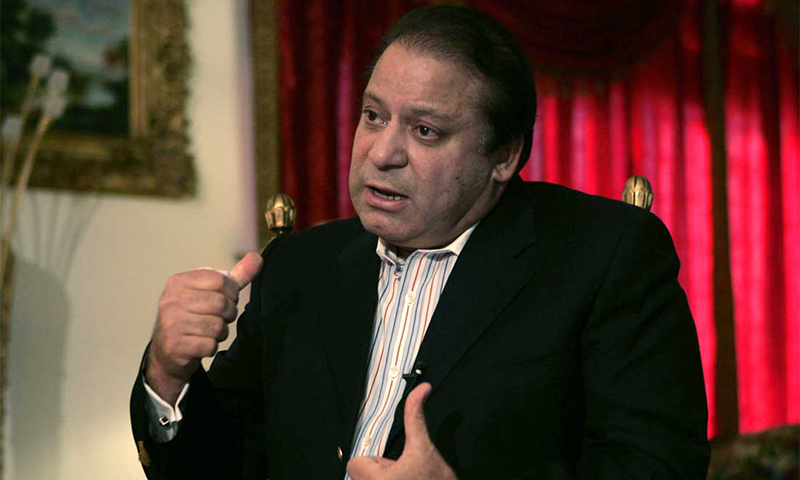ISLAMABAD: Prime Minister Nawaz Sharif said on Wednesday he was determined to go ahead with the option of military courts even though “I have a lurking suspicion that one day I, too, could face such a forum”.
“This fear cannot make me forget the schoolchildren massacred by terrorists in Peshawar,” Mr Sharif said.
The prime minister, who was forced by the opposition to make a rare appearance in the Senate to wind up the discussion on military courts, was replying to a question by PPP’s Raza Rabbani.
Mr Rabbani had recalled that setting up of military courts in 1977 and 1998 had eventually led to the removal of the prime minister.
The prime minister said the constitutional and legal framework for setting up speedy trial courts, to be led by army officers, was ready for presenting before parliament. “We are doing it within the ambit of the constitution and cannot even think of deviating from the constitution and the law.”
Nawaz Sharif said one should rise above his person and think about the nation. “Extraordinary circumstances demand extraordinary steps,” he said, adding that armed militias could not be allowed to roam freely and pose a threat to Pakistan and other countries.
Mr Sharif said as chief executive of the country, it was his duty to find a solution to the menace of terrorism. If meaningful action was delayed today, the opportunity would be lost forever, he warned.
“The campaign against terrorism will go on as long as even one terrorist is alive,” Mr Sharif said.
He said there were cases of serious nature which remained pending in courts for two to three decades. It was an obligation for all to think about horrific and filthy environment created by terrorists, he said and referred to the recent terrorist attack at Karachi airport and a blast at Wagah border.
He said the idea of establishing military courts was for protection and betterment of the nation. Society could not be turned into a jungle for protection of fundamental rights of terrorists, he said. “The focus of the nation should remain on fighting terrorism.”
PESHAWAR TRAGEDY: Mr Sharif said the Peshawar tragedy had united the nation which was now committed to achieving the objective of stamping out terrorism. He said it had to be conceded that no concrete course of action was devised in the past to tackle the serious issue of terrorism which had claimed 50,000 lives so far.
He said soon after assuming power his government took serious steps to address the issue. Initially the government tried to resolve the issue through talks but it did not work and the decision was taken to launch the Zarb-i-Azb operation in North Waziristan, he said.
The prime minister said he convened a meeting of all political parties to evolve a plan of action against terrorism and extremism. A committee was set up to prepare a national plan of action in seven days. The committee proposed establishment of military courts and all political parties supported the proposal and agreed that the state should move ahead with force to combat terrorism, he said.
He said places of worship, schools, airports and other important buildings had been targeted by terrorists. Terrorists could not be allowed to make the entire nation hostage, he said, vowing to avenge each drop of blood of innocent children massacred in Peshawar. He said the political and military leadership shared the pledge.
Mr Sharif said 15 committees had been formed to propose steps for implementation on the anti-terrorism action plan and most of them had submitted recommendations.
He said speedy trial courts led by military officers would only try criminals involved in terrorism. The government believed in freedom of the press, but could not tolerate glorification of terrorists, he said.
Interestingly, Syed Zafar Ali Shah of the ruling PML-N had earlier opposed the idea of establishing military courts. In his speech, he said if a proposal was floated for appointment of some politicians as corps commanders it would evoke strong reaction that how those lacking military training could assume that office. Similarly, it would be a joke with the constitution and law to appoint people having no concept of philosophy of justice as judges, he said.
When Minister for Water and Power Khawaja Asif was given the floor to answer a question about raise in power tariff, Zahid Khan of the ANP, who also heads the Senate standing committee on water and power, refused to listen to him saying that the minister did not attend meetings of the committee. When the chair overruled the objection, the ANP staged a walkout also joined by the PPP and PML-Q.
Published in Dawn, January 1st, 2015













































